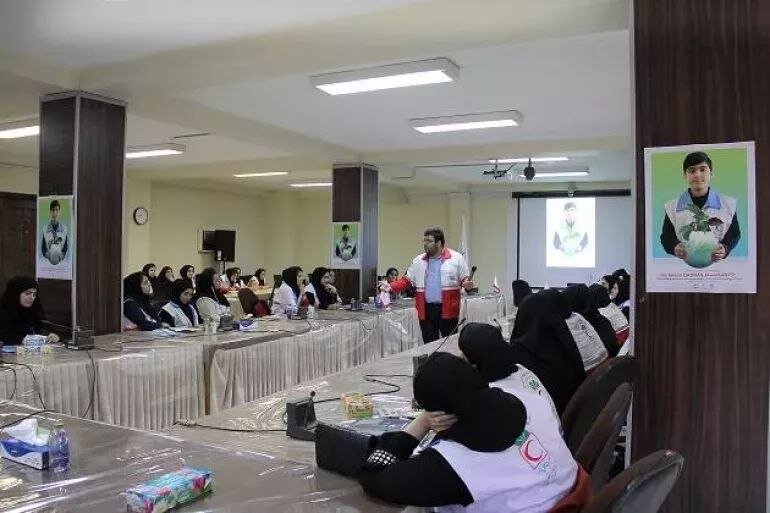IRCS, UNICEF to boost students’ knowledge in climate change

TEHRAN –Under a newly launched initiative, titled Green DADRAS, the Iranian Red Crescent Society (IRCS) and the United Nations Children’s Fund (UNICEF) in collaboration with the Climate Change Secretariat aim to promote students’ climate literacy.
A total of 11,536 high school students, girls and boys aged 12 to 15 years, from across Iran will benefit from the educational program, the UNICEF website announced in a press release on August 22.
By raising awareness and promoting proactive measures, the IRCS and UNICEF aim to create a positive environmental impact and contribute to a more sustainable future for all.
The newly launched Green DADRAS Initiative, guided by the Climate Change Secretariat of the IRCS, has equipped 46 master trainers from the Youth Organization of the IRCS to lead educational sessions on climate change for these school students.
These dedicated trainers will train 824 provincial trainers across the country to finally empower over 11,000 high school students within DADRAS teams, focusing on critical topics such as drought and floods.
The initiative will enable these students to design and implement impactful climate change-related campaigns within their schools and communities.
Having received education on the importance of climate change, these young minds will then be equipped with the knowledge and tools they need to make informed decisions and take proactive measures to protect their environment.
Considering the significant impact of climate change in Iran, this initiative is considered a crucial step towards securing a better future for the next generation.
Other services
The Vice Presidency (VP) for Science, Technology, and Knowledge-based Economy and UNICEF organized a training session for VP directors on child rights.
The training session was held in the last week of May, the UNICEF website announced in a press release on June 3.
A total of 18 VP directors and experts specialized in the fields of innovation, artificial intelligence (AI), knowledge-based economy, and cultural technologies attended the one-day training.
During the session, the participants gain insight into Results Based Management (RBM) and UNICEF’s Innovation Strategy.
They also discussed the Convention on the Rights of the Child (CRC), and the relevant corresponding national legislation.
The session also covered government sectoral accountabilities, in developing national plans that contribute to the identification and addressing of the child rights deprivations in the country.
Following the CRC briefing, several modules of the RBM were elaborated, underscoring UNICEF’s approach to planning, implementation, and monitoring of the 2023-2027 Country Program, which aims to improve the delivery of results for children and the realization of the rights of the children in the country.
The RBM training put implementation planning and monitoring at the front and center of program development by providing insights into implementation strategies, work planning, budgeting, risk and change management, resource, and progress tracking well as outcome and impact monitoring as a means of accountability towards children.
The training ended with a brief overview of UNICEF’s global innovation strategy, UNICEF’s global artificial intelligence guidelines that focus on protecting the rights of children as well as sharing successful experiences of UNICEF innovations in programming with and for children.
The ministry of education and UNICEF held a workshop for principals of Upper Secondary Boarding Schools from 10 provinces to boost their capacities in developing students’ skills which are essential to finding a decent job.
The four-day long workshop was held from April 27 to 30. A total of 90 Upper Secondary Boarding School principals from 10 provinces of Kordestan, Kermanshah, Hamedan, Ilam, Zanjan, Markazi, Qazvin, Ardebil, West and East Azarbaijan attended the workshop.
UNICEF’s collaboration with the ministry of education focuses on adolescents in boarding schools, which are secondary schools in disadvantaged parts of the country.
The training opportunity provides school principals with the necessary knowledge and skills to support the students, at these schools in rural and remote regions, in improving their self-assurance, problem-solving, and teamwork skills.
This series of workshops marks the initial phase that will span across all provinces throughout the year, the UNICEF website announced in a press release on May 9.
MT/MG
Leave a Comment